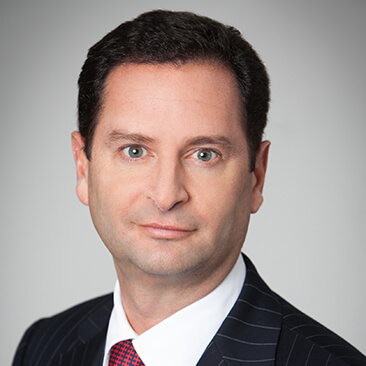All too often the task of procuring and renewing D&O insurance at a portfolio company is assigned to the portfolio company’s CFO or Controller, who employs an insurance broker to find the best price for the amount of coverage deemed appropriate by the broker. When such insurance is procured and thereafter renewed, the CFO/Controller simply reports to the board the fact of the procurement/renewal and few questions about the terms of coverage are discussed at the board level. This can be a big mistake. Indeed, a recent case from the Delaware Superior Court illustrates the potential pitfalls this lack of board attention to the portfolio company’s D&O coverage can create, particularly in the context of rescue financing offered by a private equity owner to a troubled portfolio company.
In Goggin v. National Union Fire Insurance Company, C.A. No.: N17C-10-083 PRW CCLD ( Del Sup. Nov.30, 2018), the court held that a “capacity exclusion” in a company’s D&O policy was effective to eliminate any coverage for two directors, who were also acting in the capacity as owners of investment vehicles that acquired debt and equity securities in that company. By way of background, the two directors, Goggin and Goodwin, were initially investors in U.S. Coal Corporation (“U.S. Coal” or the “Company”) and became directors of the Company in 2009. While directors of U.S. Coal, they formed two investment companies (the “ECM Entities”), purportedly to “reinvigorate U.S. Coal through debt purchase and other capital restructuring.” Goggin was an investor in and manager of both ECM Entities and Goodwin was an investor in both. In 2014, the creditors of U.S. Coal forced the Company into a chapter 7 bankruptcy proceeding. The Trustee, on behalf of the creditors committee, sued Goggin, Goodwin, and the ECM Entities alleging breach of fiduciary duty, claiming that Goggin and Goodwin “schemed to form and use ECM Entities to control U.S. Coal and defraud its creditors” by entering into unfair agreements with the Company which secured for themselves a higher return on investment, preferred recovery in the event of the company’s liquidation, and a discounted loan.
The D&O insurance policy contained an exclusion as follows:
The Insurer shall not be liable to make any payment for Loss in connection with any Claim made against an insured…(g) alleging, arising out of, based upon or attributable to any actual or alleged act or omission of an Individual Insured serving in any capacity, other than as [a director of officer of U.S. Coal].
The insurer argued that the claims against the directors were not covered by the policy under the foregoing exclusion because they were not acting solely in their capacity as directors of U.S. Coal. The directors’ argument was just because “the alleged conflict of interest existed due to their capacities and status as both the directors of U.S. Coal and the members/managers of [the ECM entities] does not eliminate the coverage via the ‘capacity’ exclusion if the alleged wrongful action was performed in their capacities as directors of U.S. Coal.” The insurer, on the other hand, viewed Goggin and Goodwin as latching onto their “mere status” as U.S. Coal directors in an effort to avoid losing coverage under the capacity exclusion, and instead urged the court to “examine the substantive relationship between the actions and the capacity in which those actions were taken.”
The court indicated that the policy language was “clear and unambiguous.” The phrase “arising out of” is construed broadly under Delaware law. The court followed Delaware insurance policy construction precedent and applied the “but for” test to construe the capacity exclusion, holding that the exclusionary clause applied and therefore eliminated the carrier’s coverage obligation under the D&O policy. In particular, the court found that the Trustee’s claims “would not have been established ‘but for’ Goggin and Goodwin’s alleged ECM-related misconduct.” Moreover, the court found that the Trustee’s claims are “most reasonably viewed as having arisen from Goggin and Goodwin’s misconduct as members/managers of ECM Entities (although certainly related too to their co-existence as U.S. Coal’s directors).”
In other words, because the exclusion eliminated all coverage anytime the insureds were acting in any capacity other than solely as directors, they were out of luck. Keep in mind of course that the claims here were simply alleged (not yet proved) and the insurance payments were sought to cover legal fees in defending those claims. Clearly there would be no claim against these directors unless they were directors. As shareholders and creditors they had no fiduciary duties to breach—so but for their status as directors there would have been no claim. On the other hand, but for their capacity as shareholders/creditors that were alleged to have used their status as directors to benefit their status as shareholders/creditors, there also would not have been a claim. For this reason, private equity sponsors, particularly those providing “rescue financing,” should be keenly aware of this decision, and be vigilant in proactively reviewing their portfolio company D&O policies, rather than merely delegating the responsibility for such policies to management.
For private equity sponsors who often act in multiple capacities and may expect as a matter of faith that insurance coverage will be available, it would be helpful if their portfolio companies have D&O policies that do not require the Insured Person to be acting solely in an insured capacity. And, at a minimum, there should be some consideration of adding appropriate qualifications to any capacity exclusion (or “wrongful act” definition) given the inherent multiple capacities in which private equity sponsors act in connection with a portfolio company.
While D&O policies have historically had, and will continue to have, limitations on coverage that apply in different contexts, and while it is not surprising that the court found for the insurer on these facts, one takeaway from this case is that private equity professionals must (with the help of informed D&O specialists) be aware of and seek to fine-tune the capacity exclusion that was the subject of this case.








